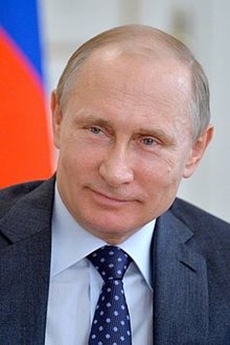Russia, Belarus and Kazakhstan form Eurasian Economic Union
30 May 2014
Russia, Belarus and Kazakhstan on Thursday signed a treaty to create the Eurasian Economic Union, finalising the establishment of the CIS's largest common market, which is slated to become a new economic powerhouse.
 Russian President Vladimir Putin, President Nursultan Nazarbayev of Kazakhstan and President Alexander Lukashenko of Belarus signed the agreement, during a session of the Supreme Eurasian Economic Council in Astana, Kazakhstan.
Russian President Vladimir Putin, President Nursultan Nazarbayev of Kazakhstan and President Alexander Lukashenko of Belarus signed the agreement, during a session of the Supreme Eurasian Economic Council in Astana, Kazakhstan.
The council, created by several former Soviet states in the 1990s, regulates the Eurasian Economic Community.
The accord sets a target date of 1 January 2015 for the coming into being of the new common market that would promote integration and free trade among the member states on the lines of the European Union.
''The just-signed treaty is of epoch-making, historic importance,'' Putin said at a ceremony in the Kazakh capital.
The union is conceived as an EU-style bloc aimed at promoting integration and free trade between its three member states, with more countries to follow.
The treaty commits the three nations to a higher level of economic integration. They have committed to guaranteeing free movement of goods, services, capital and labor as well as the implementation of coordinated policies in key sectors, including energy, industry, agriculture and transportation.
"It's a tremendous step forward," Voice of Russia quoted Kirill Koktysh, associate professor at the Moscow Institute of International Relations, as saying.
The three countries also have complementary economies; Russia will be able to boost modern standards in the other two, while they will bring advantages in the shape of reliable labour forces, according to Koktysh.
The council also considered applications from other potential member states, including Armenia and Kyrgyzstan. Armenia hopes to sign the Eurasian Economic Union Treaty by 15 June.
The union was originally planned as the bridge between Europe and Asia but after recent events in and relating to Ukraine, this union will be more protectionist than envisaged as the area develops its re-industrialisation programme, says Koktysh.
According to him, Belarus will benefit the most because it has quite a large industrial potential, and Kazakhstan to a lesser extent.
It is estimated that Belarus, Russia and Kazakhstan together can chalk up economic growth of up to 10 per cent over the next 10-12 years. But the details of how the union will work are yet to be finalised.
The new bloc, however, comes nowhere near the EU in size as even after the entry of Armenia and Kyrgyzstan, its total gross domestic product would only be about $2.6 trillion - less than one-fifth of the European Union or the US and less than one-third of China.
Russia will account for more than 80 per cent of the bloc's GDP and a similar share of its roughly 178 million population, says Nicu Popescu, an analyst at the EU's Institute for Security Studies in Paris.
Meanwhile, Turkey is also reported to have expressed interest in signing up for the union as its economy has similarities with Russia's and there's no conflicting competition to impede a closer relationship.



















